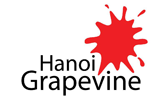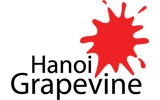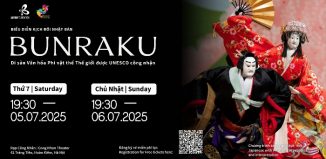Ngũ Xã Island – Part 2
Part 2: The Healer Monk, the King, and the Emperor
“The King suffered from a strange illness: each night he turned into a tiger.”
In the year 1065, 93 years after general Ngô Quyền defeated the armies of the Southern Han of China in the great battle on the Bạch Đằng River now depicted in the diorama on the ground floor of the Museum of History in Hanoi; and some years after an up-and-coming monk, scholar, and military commander by the name of Lý Công Uẩn, who would soon move the capital from the poorly positioned Hoa Lư to Thăng Long, was chosen in 1009 to be King Lý Thái Tổ when the previous tyrant king Lê Ngoạ Triều finally died; a boy was born to a family in Vietnam. He was given the name Lý Quốc Sư.
He eventually went to seminary and became the monk Nguyễn Minh Không. Along the way, he learned the traditional healing methods. His fame spread in the new capital, and soon the King also knew of him.
The King suffered from a strange illness: each night he turned into a tiger.
Many healers went to the Thăng Long Palace to try to cure the King of his illness, but none of them was able to cure the King. Finally, the King requested that the monk Nguyễn Minh Không come to the palace. He succeeded where all the other healers had failed and cured the King of his strange illness.
Throughout the history of Vietnam, there has never been a time when the government of Vietnam and the government of China have not had relations – sometimes good, sometimes bad. After the monk Nguyễn Minh Không cured the King of Vietnam of his strange illness, the Emperor of China heard of him. The Emperor also suffered from an illness, and could not find anyone to cure him of it. When the Emperor of China heard of the monk Nguyễn Minh Không, he summoned him to the capital of China. Yet again, the monk Nguyễn Minh Không succeeded where other healers had failed and cured the Emperor of his illness.
Surely now you will ask what for did those families come to Ngũ Xã Island, right? Ah, for the answer to this question you will have to wait until the next time I write more!
Sources:
Bronze Casting in Vietnam, Bùi Văn Vượng, Thế Giới Publishers, 2008
Quan Thánh Temple, Hanoi, Friends of Vietnam Heritage, Thế Giới Publishers, 2002
Hồ Tây, Walks Around West Lake, Friends of Vietnam Heritage, Thế Giới Publishers, 2009
Vietnam, a Long History, Nguyễn Khác Viện, Thế Giới Publishers, 2007
I need your help: If you know of any upcoming event for this column, please let me know.
To read part 1 of Ngũ Xã Island, visit Roman’s previous post.
![]()
| Hanoi Grapevine focuses mainly on contemporary art and culture in Vietnam, but we also post information about events that are part of Vietnam’s rich cultural heritage. Mr. Roman Szlam, a student of Vietnamese language, history and culture, has a passion for attending and learning about the world of Vietnamese traditional cultural events. He has offered to provide us with information that crosses his path about such events in Hanoi as he explores this aspect of life in Vietnam. Roman also maintains a website with a schedule of local activities which are beyond the range of Hanoi Grapevine at www.hanoilocal.info. |















This is a exciting story with good writting skill :). But i have some comments for word choice :
chỉ huy quân sự ( đầy hứa hẹn) tài năng, lỗi lạc
(thủ đô mới ) kinh thành Thăng Long
I think the last part is not related to the first ones. Hope my comments is useful for you ;)
Thank you very much for your comments – I really appreciate the suggestions. About the word choice, I’m only a 2nd-year student of Vietnamese, and I have a very limited vocabulary, so when I write in Vietnamese, I try to use the words I know. Of course, I have to learn new words, too, but that comes with time.
I know that I don’t write like a Vietnamese person would. Firstly, as I said, I’m only a 2nd-year student of the language, and so I am limited in my knowledge. Secondly, I’m not Vietnamese. So, my teacher, or whoever helps me by correcting the text and teaching me new ways to say things, must also preserve my voice in the text – they should not try to Vietnamise my foreign ways of thinking; you should understand that I am a foreigner.
As far as the relationship between the parts, my friend, you, along with all the other readers will just have to have patience and wait until all the parts of the story are published before so that you can see that, indeed, all the parts are related – they are all a part of the history of the island!
Again, thanks for being a loyal reader!
You are a student of language. Good. First, I thank you for loving the country and people of Vietnam. Your writings show that love. I wish you lots of health, success in learning, discovery and research in our country. When you encounter any difficulty in learning Vietnamese language materials … please mail me, may I help you something. I also want to learn the language, culture and everything for you, so do not hesitate !